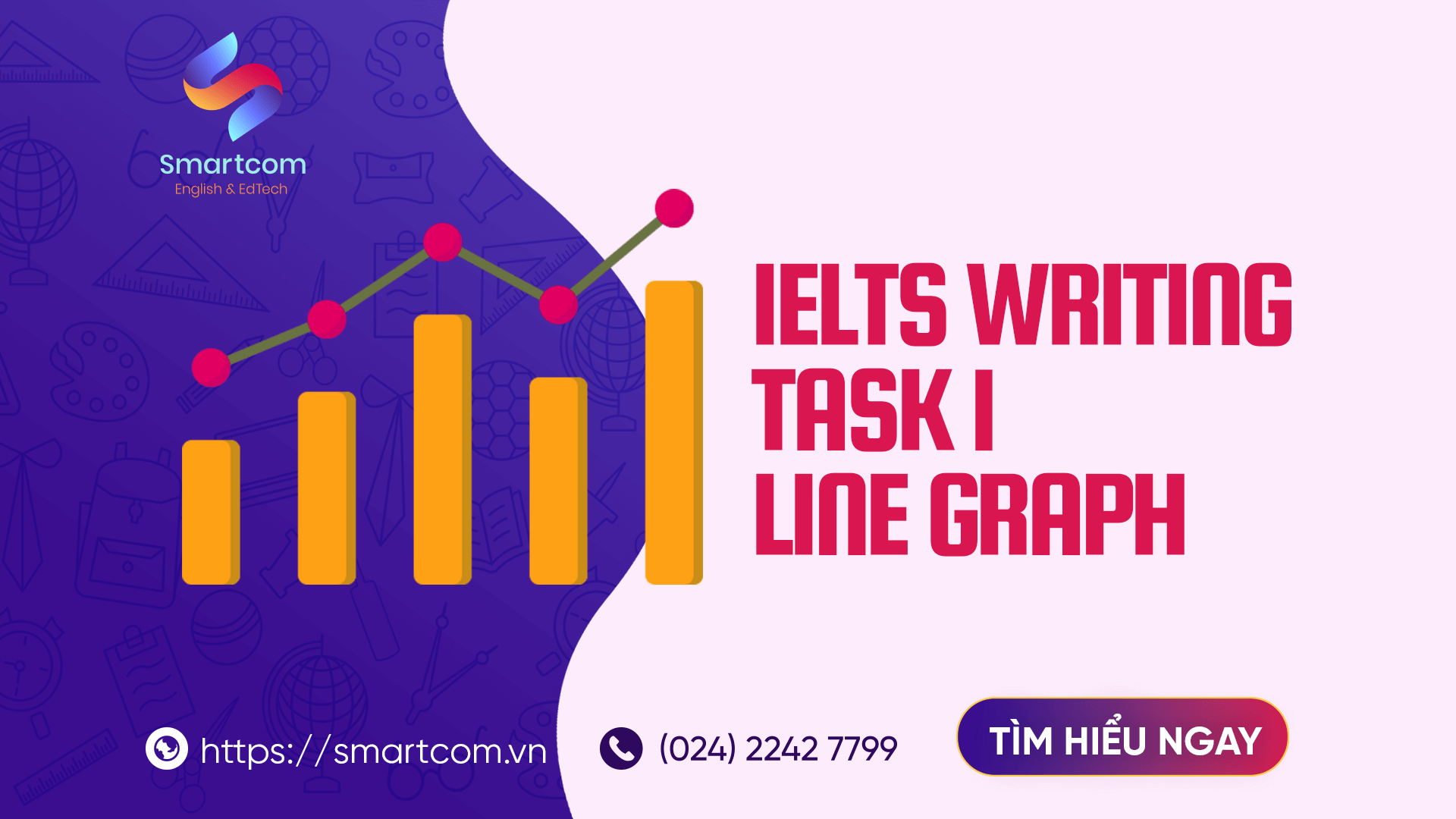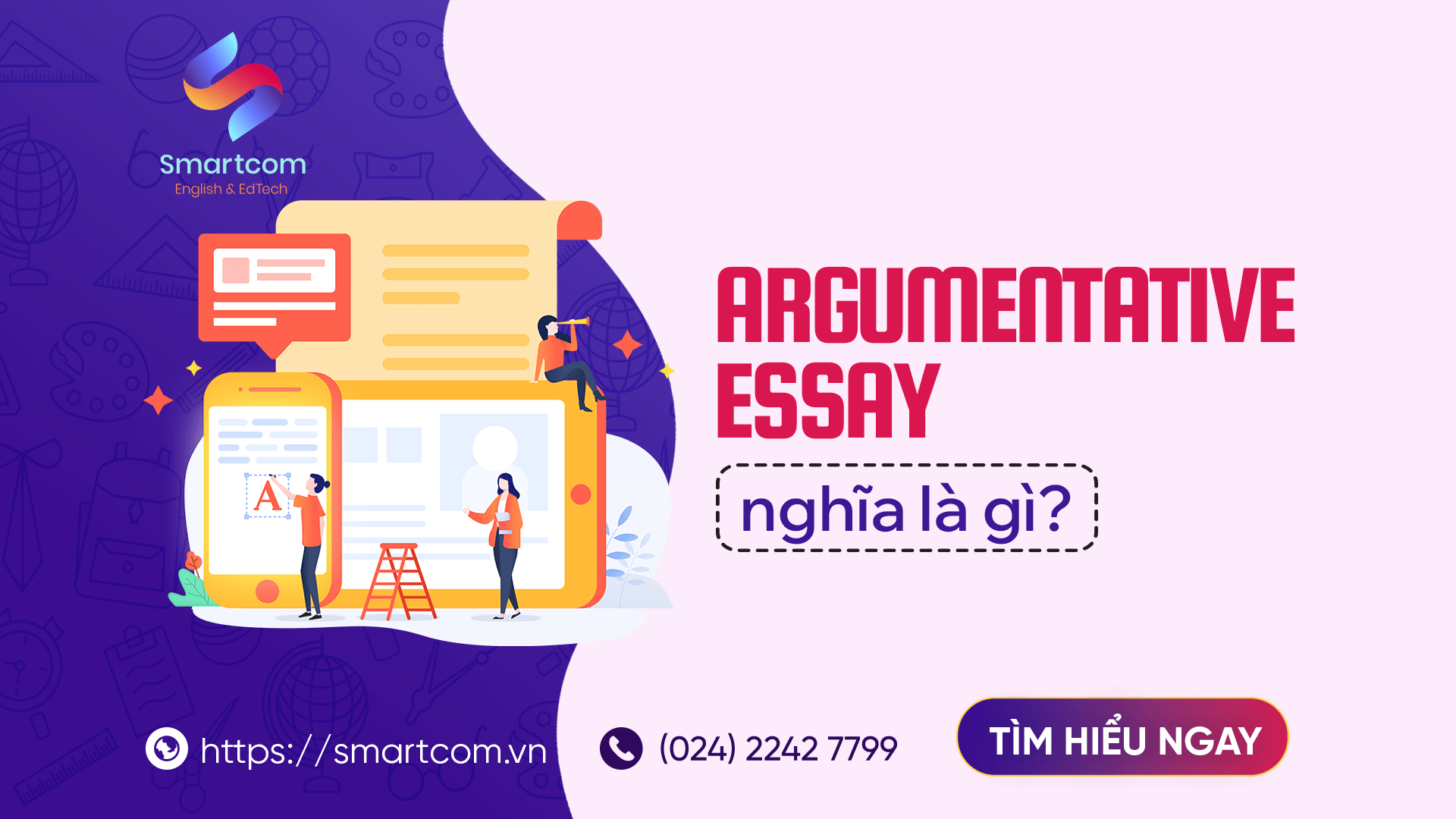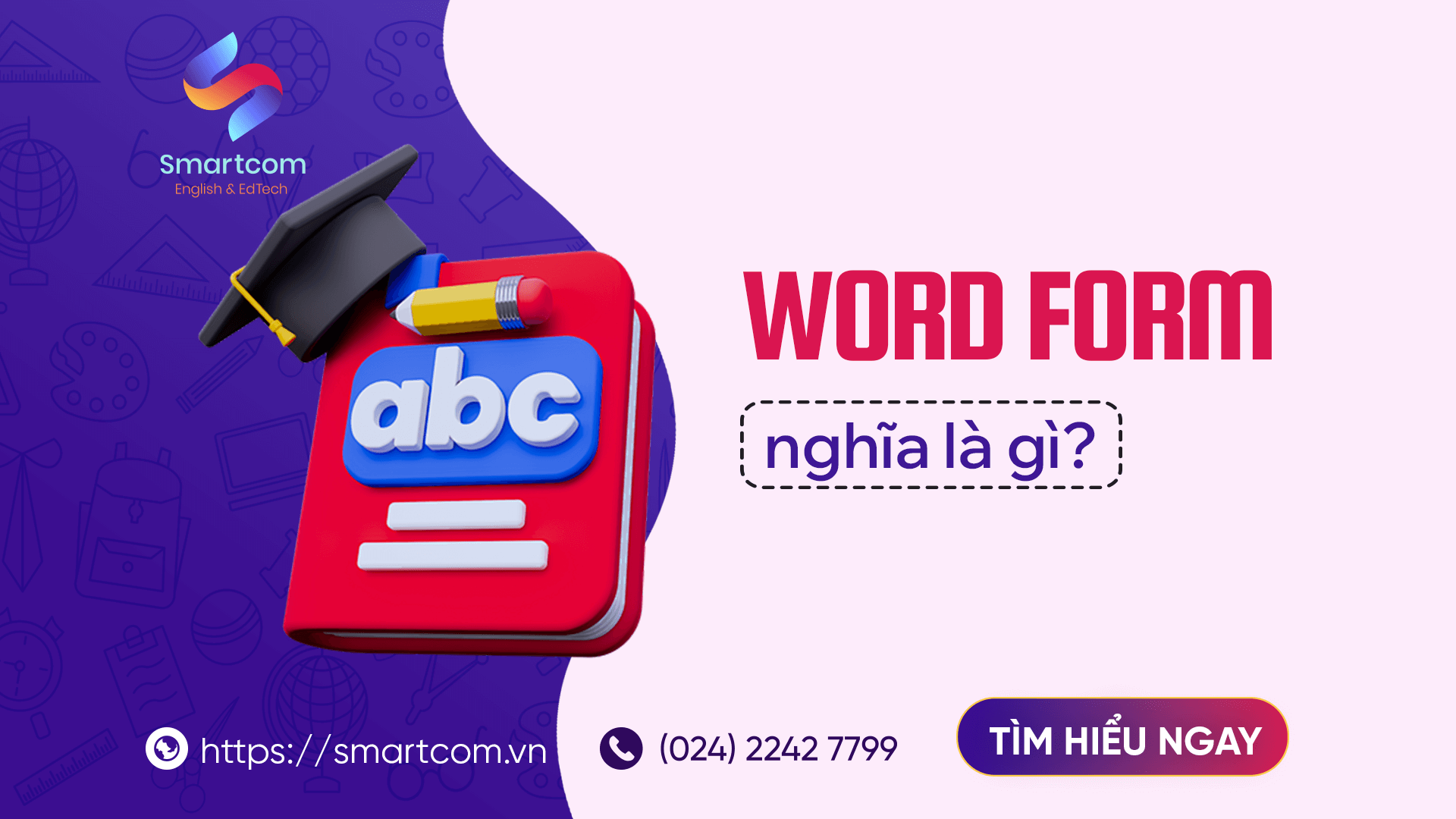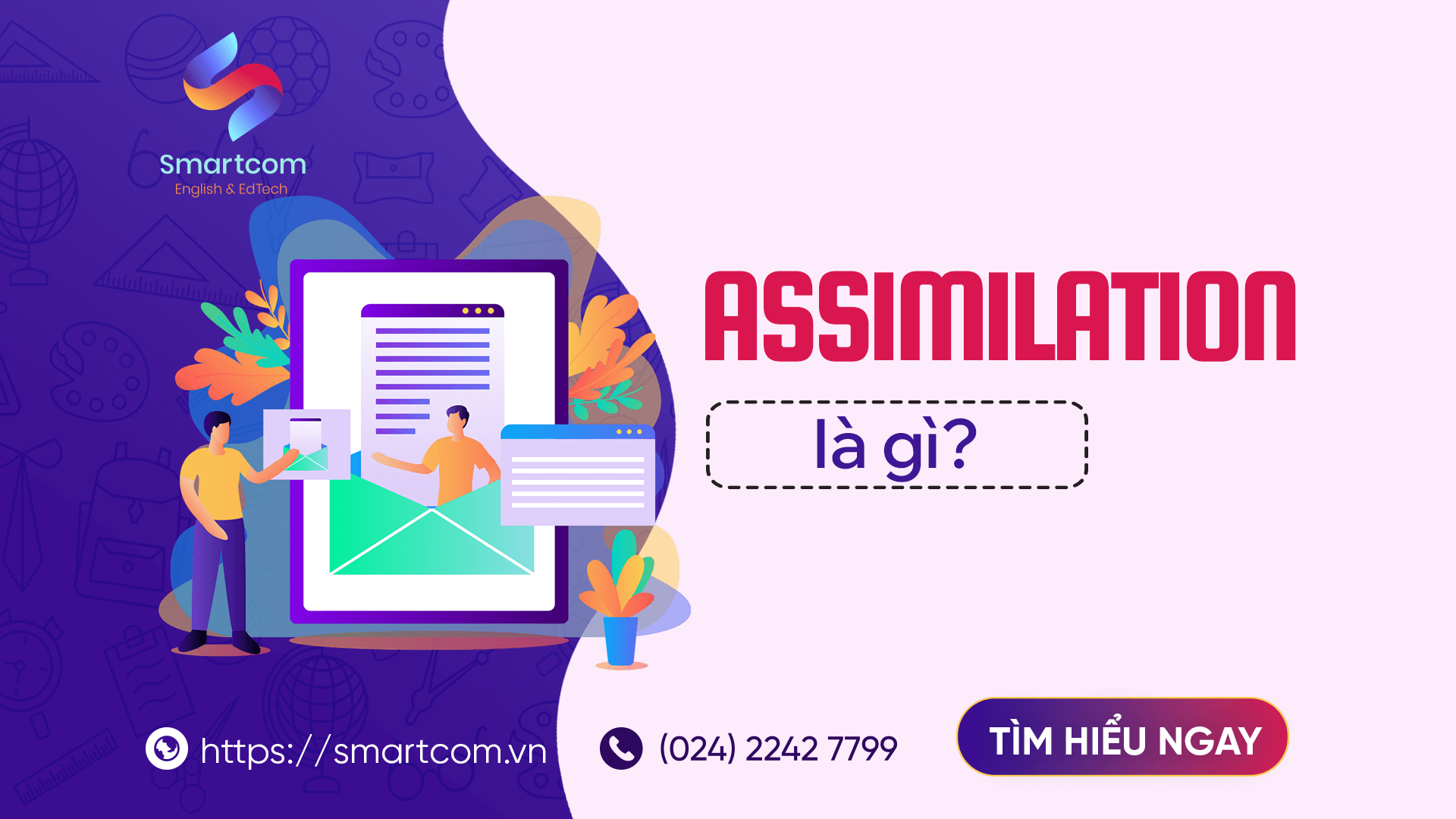Đội ngũ chuyên gia tại Smartcom English là tập hợp những chuyên gia đầu ngành trong lĩnh vực IELTS nói riêng và tiếng Anh nói chung. Với phương pháp giảng dạy sáng tạo, kết hợp với công nghệ AI, chúng tôi mang đến những trải nghiệm học tập độc đáo và hiệu quả. Mục tiêu lớn nhất của Smartcom Team là xây dựng một thế hệ trẻ tự tin, làm chủ ngôn ngữ và sẵn sàng vươn ra thế giới.
Để tiếp tục series “Học IELTS Speaking theo chủ đề”, trong bài viết này, Smartcom IELTS Gen 9.0 sẽ cung cấp cho bạn list 50 từ vựng, đi kèm với các câu hỏi và mẫu trả lời IELTS Speaking topic Education để bạn tham khảo và nâng cao kỹ năng IELTS Speaking của bản thân.

List 50 từ vựng IELTS thường gặp chủ đề Education
Để chuẩn bị kỹ lưỡng cho phần thi IELTS Speaking topic Education, bạn cần phải trau dồi một lượng từ vựng nhất định để có thể diễn đạt một cách linh hoạt suy nghĩ của mình. Sau đây là list 50 IELTS vocabulary topic Education thường gặp nhất mà Smartcom English đã tổng hợp được:
- Education /ˌɛdʒʊˈkeɪʃən/ – Giáo dục
- Schooling /ˈskuːlɪŋ/ – Học tập, trường học
- Curriculum /kəˈrɪkjʊləm/ – Chương trình học
- Learning /ˈlɜːrnɪŋ/ – Học hỏi
- Academic /ˌækəˈdemɪk/ – Học thuật
- Knowledge /ˈnɒlɪdʒ/ – Kiến thức
- Skills /skɪlz/ – Kỹ năng
- Subjects /ˈsʌbdʒɪkts/ – Môn học
- Students /ˈstjuːdənts/ – Sinh viên, học sinh
- Teachers /ˈtiːtʃərz/ – Giáo viên
- Classroom /ˈklɑːsruːm/ – Phòng học
- Lecture /ˈlɛktʃə/ – Bài giảng
- Assignment /əˈsaɪnmənt/ – Bài tập
- Exam /ɪɡˈzæm/ – Kỳ thi
- Assessment /əˈsɛsmənt/ – Đánh giá
- Grade /ɡreɪd/ – Điểm số
- Diploma /dɪˈpləʊmə/ – Bằng cấp
- Degree /dɪˈɡriː/ – Bằng, cấp bậc
- Certificate /səˈtɪfɪkət/ – Chứng chỉ
- University /ˌjuːnɪˈvɜːsəti/ – Đại học
- College /ˈkɒlɪdʒ/ – Trường cao đẳng
- Institution /ˌɪnstɪˈtjuːʃən/ – Cơ sở giáo dục
- Lecture hall /ˈlɛktʃə hɔːl/ – Hội trường
- Tutorial /tjuːˈtɔːriəl/ – Bài hướng dẫn
- Homework /ˈhəʊmwɜːk/ – Bài tập về nhà
- Textbook /ˈtɛkstbʊk/ – Sách giáo khoa
- Research /rɪˈsɜːtʃ/ – Nghiên cứu
- Study /ˈstʌdi/ – Học, nghiên cứu
- Revision /rɪˈvɪʒən/ – Ôn tập
- Academic performance /ˌækəˈdɛmɪk pəˈfɔːməns/ – Quá trình học tập
- Attendance /əˈtɛndəns/ – Sự tham dự, đi học
- Extra-curricular activities /ˌɛkstrə kəˈrɪkjʊlər ækˈtɪvɪtiz/ – Hoạt động ngoại khóa
- Scholarship /ˈskɒləʃɪp/ – Học bổng
- Grant /ɡrɑːnt/ – Hỗ trợ tài chính, trợ cấp
- Tuition /tjuːˈɪʃən/ – Học phí
- Fees /fiːz/ – Phí
- Student loan /ˈstjuːdənt ləʊn/ – Vay sinh viên
- Student debt /ˈstjuːdənt dɛt/ – Nợ sinh viên
- Graduation /ˌɡrædʒʊˈeɪʃən/ – Lễ tốt nghiệp
- Alumni /əˈlʌmnaɪ/ – Cựu sinh viên
- Academic year /ˌækəˈdɛmɪk jɪər/ – Năm học
- Semester /sɪˈmɛstər/ – Học kỳ
- Term /tɜːrm/ – Kỳ học
- Major /ˈmeɪdʒər/ – Chuyên ngành chính
- Minor /ˈmaɪnər/ – Chuyên ngành phụ
- Thesis /ˈθiːsɪs/ – Luận văn
- Dissertation /ˌdɪsəˈteɪʃən/ – Luận án
- Academic achievement /ˌækəˈdɛmɪk əˈtʃiːvmənt/ – Thành tựu học thuật
- Peer learning /pɪə ˈlɜːrnɪŋ/ – Học từ bạn bè
- E-learning /ˈiːˌlɜːrnɪŋ/ – Học trực tuyến
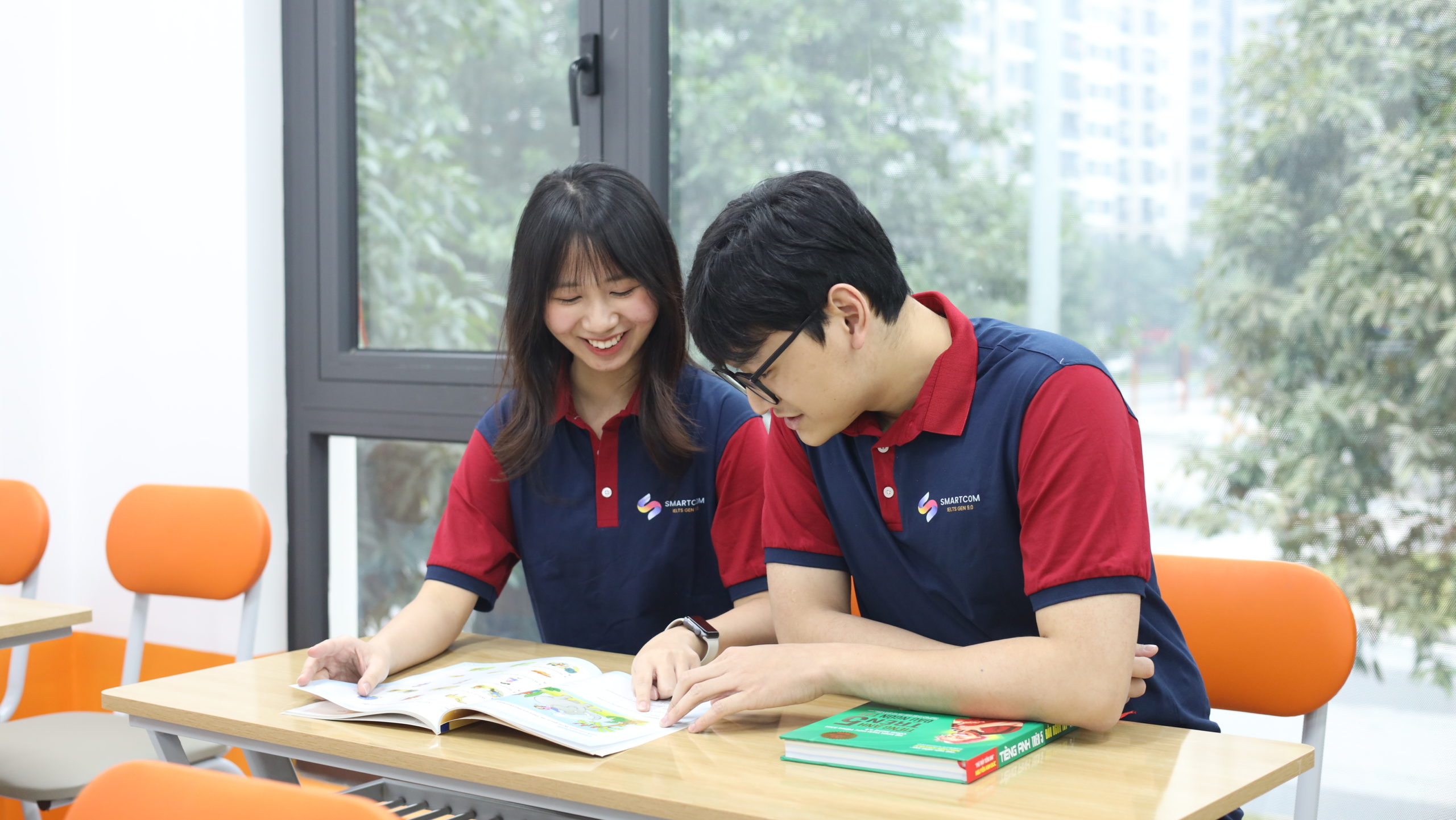
Thành ngữ (idioms) chủ đề Education
- Hit the books: học chăm chỉ
- “I need to hit the books tonight if I want to pass the exam.”
- Learn the ropes: học cách làm một việc gì đó
- “It took a while to learn the ropes at my new job.”
- Pass with flying colors: vượt qua kỳ thi với kết quả xuất sắc
- “She passed her final exams with flying colors.”
- Burn the midnight oil: học hoặc làm việc muộn vào ban đêm
- “I had to burn the midnight oil to finish my essay.”
- Brainstorm: động não, suy nghĩ
- “We need to brainstorm ideas for our group project.”
- Make the grade: đạt đủ điểm yêu cầu
- “If you don’t study hard, you won’t make the grade.”
- A quick study: người học nhanh
- “She’s a quick study and understands new concepts easily.”
- Go back to the drawing board: bắt đầu lại từ đầu
- “The experiment failed, so we need to go back to the drawing board.”
IELTS Speaking Part 1,2,3 chủ đề Education
Dưới đây là một số câu hỏi speaking chủ đề Education part 1, 2 và 3 thường gặp với câu trả lời mẫu để bạn tham khảo.
IELTS Speaking Part 1 topic Education
Question 1: Do you work or are you a student?
Well, I’m currently a student at Hanoi University, and I’m majoring in English language. It’s been a remarkable journey immersing myself in the world of English language and literature. This major has provided me with an excellent platform to explore various literary works, linguistic theories, and cultural nuances. I’ve had the opportunity to analyze the works of renowned English authors, study the evolution of the English language, and delve into cross-cultural communication studies.
- Platform /ˈplæt.fɔːrm/ – Nền tảng
- Literary works /ˈlɪt.ər.er.i wɜːrks/ – Tác phẩm văn học
- Linguistic theories /lɪŋˈɡwɪs.tɪk ˈθɪr.i/ – Lý thuyết ngôn ngữ học
- Cultural nuances /ˈkʌl.tʃər.əl ˈnjuː.ɑːnsɪz/ – Sắc thái văn hóa
- Renowned /rɪˈnaʊnd/ – Nổi tiếng, danh tiếng
- Delve into /delv ˈɪntuː/ – Đào sâu vào, khai quật
- Cross-cultural communication studies /krɒs-ˈkʌl.tʃər.əl kəˌmjuː.nɪˈkeɪ.ʃən ˈstʌd.iːz/ – Nghiên cứu giao tiếp đa văn hóa
Question 2: What was your favourite subject as a child?
Well, as a child, my favorite subject was definitely science. I was always curious about how things worked and why they happened the way they did. Science classes, especially those involving hands-on experiments and demonstrations, fascinated me the most. I loved exploring the natural world around me and learning about various scientific phenomena, from the water cycle to the solar system. Science opened up a whole new world of discovery for me, and I always looked forward to experimenting and uncovering new things in the classroom. It was both exciting and rewarding to see the principles of science come to life through practical demonstrations and interactive learning experiences.
- Curious /ˈkjʊə.ri.əs/ – Tò mò
- Hands-on experiments /hændz-ɒn ɪkˈsper.ɪ.mənts/ – Thí nghiệm thực hành
- Demonstrations /ˌdem.ənˈstreɪ.ʃənz/ – Biểu diễn, minh họa
- Scientific phenomena /ˌsaɪənˈtɪfɪk fɪˈnɒm.ɪ.nə/ – Hiện tượng khoa học
- Uncover /ʌnˈkʌv.ər/ – Khám phá, phát hiện
- Interactive learning experiences /ˌɪn.tərˈæk.tɪv ˈlɜː.nɪŋ ɪkˈspɪə.ri.ənsɪz/ – Trải nghiệm học tương tác
Question 3: Do you prefer studying alone or with others?
Sample Answer: I prefer studying alone because it allows me to concentrate better and work at my own pace. However, I do enjoy group study sessions for subjects that require discussion and different viewpoints, as they can provide new insights and make learning more dynamic.
Vocabulary:
- Concentrate: tập trung
- At my own pace: theo tốc độ của riêng mình
- Viewpoints: quan điểm
- Insights: sự hiểu biết sâu sắc
- Dynamic: năng động
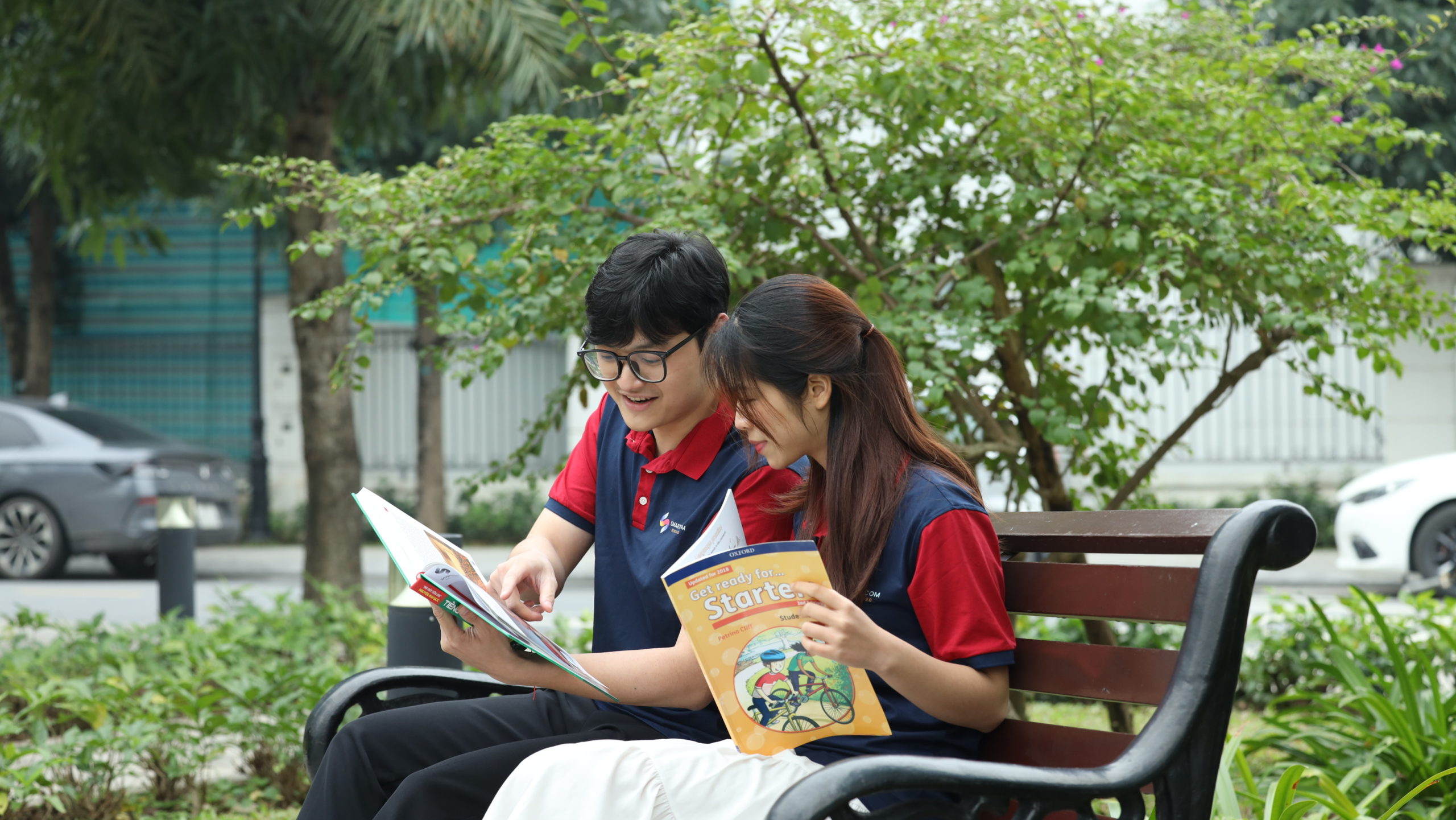
IELTS Speaking Part 2 topic Education
Question: Describe a subject you enjoyed studying at school.
You should say:
- When and where you started studying it
- What lessons were like
- What made the subject different from other subjects
- and explain why you enjoyed the subject
Sample Answer:
One subject I particularly enjoyed studying at school was History. I began studying History when I entered secondary school at the age of 11. Our history lessons took place in a traditional classroom setting, with the teacher using a variety of teaching methods such as lectures, group discussions, and multimedia presentations.
What made History different from other subjects was its storytelling aspect. Instead of just memorizing facts and figures, we were encouraged to delve into the narratives of different historical events, exploring the motives of key figures and the consequences of their actions. Our lessons were like voyages through time, where we would immerse ourselves in the rich tapestry of human history.
What I enjoyed most about studying History was the opportunity to understand the world around me in a deeper context. Learning about the struggles and triumphs of past civilizations helped me gain a broader perspective on current events and societal issues. Additionally, History provided me with critical thinking skills as we analyzed primary and secondary sources, evaluated historical evidence, and formed our own interpretations of historical events.
Moreover, History sparked my curiosity and fueled my passion for learning. I found myself drawn to the fascinating stories of courage, resilience, and innovation that shaped our world. Whether it was studying ancient civilizations, world wars, or social movements, each topic offered a treasure trove of insights and lessons that resonated with me on a personal level.
Overall, studying History was not just about memorizing dates and events; it was a journey of discovery that enriched my understanding of humanity and instilled in me a lifelong love for learning.
- Traditional classroom setting /trəˈdɪʃənl ˈklɑːsruːm ˈsɛtɪŋ/ – Mô hình lớp học truyền thống
- Lectures /ˈlɛk.tʃərz/ – Bài giảng
- Group discussions /ɡruːp dɪˈskʌʃ.ənz/ – Thảo luận nhóm
- Multimedia presentations /ˌmʌltiˈmiːdiə ˌprɛzənˈteɪʃənz/ – Trình bày đa phương tiện
- Storytelling aspect /ˈstɔːriˌtɛlɪŋ ˈæspɛkt/ – Khía cạnh kể chuyện
- Facts and figures /fæks ænd ˈfɪɡərz/ – Sự thật và con số
- Narratives /ˈnærətɪvz/ – Câu chuyện, lời kể
- Motives /ˈmoʊtɪvz/ – Động cơ, động lực
- Tapestry /ˈtæpɪstri/ – Bức tranh, tấm thảm
- Struggles and triumphs of past civilizations /ˈstrʌɡlz ænd ˈtraɪəmfz ʌv pæst ˌsɪvə.laɪˈzeɪʃənz/ – Những cuộc đấu tranh và chiến thắng của các nền văn minh trong quá khứ
- Treasure trove of insights and lessons /ˈtrɛʒər troʊv ʌv ˈɪnsaɪts ænd ˈlɛsnz/ – Kho kiến thức và bài học quý báu
- Instilled /ɪnˈstɪld/ – Khắc sâu, truyền dạy
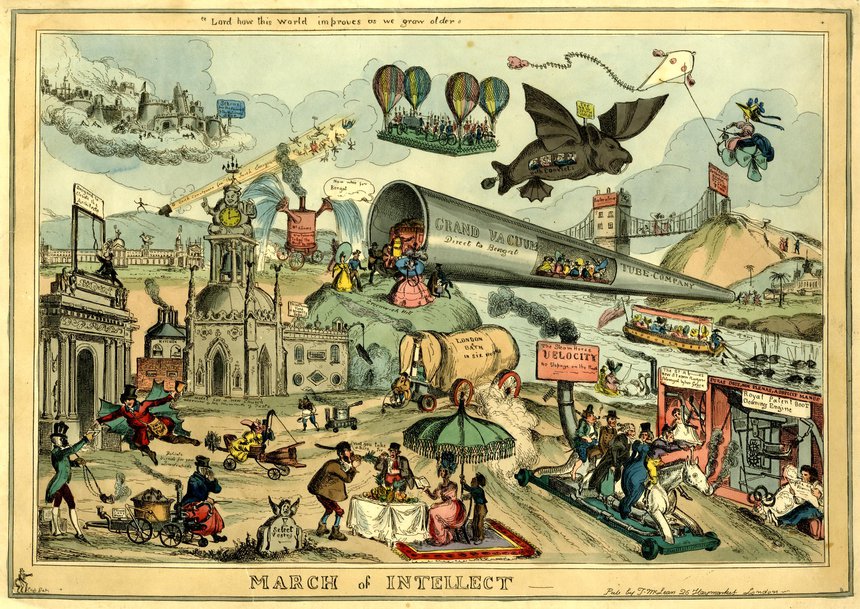
IELTS Speaking Part 3 topic Education
Question 1: Why do some people prefer to study alone?
From my perspective, some people prefer to study alone because they can create the perfect learning environment, which allows them to apply the most effective study tactics to excel both theoretically and pragmatically. In addition, studying alone helps them to fully focus on what they are doing, which improves memory ability and helps them to learn more efficiently.
- to apply the most effective study tactics /tuː əˈplaɪ ðə məʊst ɪˈfɛktɪv ˈstʌdi ˈtæktɪks/ – áp dụng được các chiến thuật học tập hiệu quả nhất
- to excel both theoretically and pragmatically /tuː ɪkˈsɛl bəʊθ ˌθɪəˈrɛtɪkəli ænd præɡˈmætɪkli/ – vượt trội cả về mặt lý thuyết lẫn thực hành
Question 2: Does the development of technology affect the way we study? How?
Yes, the development of technology has had a significant impact on the way we study. With the rise of online education platforms, students now have access to a vast amount of educational content and resources from anywhere in the world. Additionally, technology has made it easier for students to collaborate and communicate with teachers and peers and has enabled new forms of assessment and evaluation. However, it has also created new challenges such as distractions and the need to develop new digital literacy skills.
- online education platform /ˈɒnˌlaɪn ˌɛdjʊˈkeɪʃən ˈplætfɔːm/ – nền tảng học trực tuyến
- a vast amount of sth /ə væst əˈmaʊnt ʌv sʌmθɪŋ/ – một khối lượng lớn
- to collaborate /tə kəˈlæbəreɪt/ – hợp tác
- assessment and evaluation /əˈsɛsmənt ænd ɪˌvæljʊˈeɪʃən/ – đánh giá và thẩm định
- digital literacy skill /ˈdɪdʒɪtəl ˈlɪtərəsi skɪl/ – kỹ năng hiểu biết kỹ thuật số
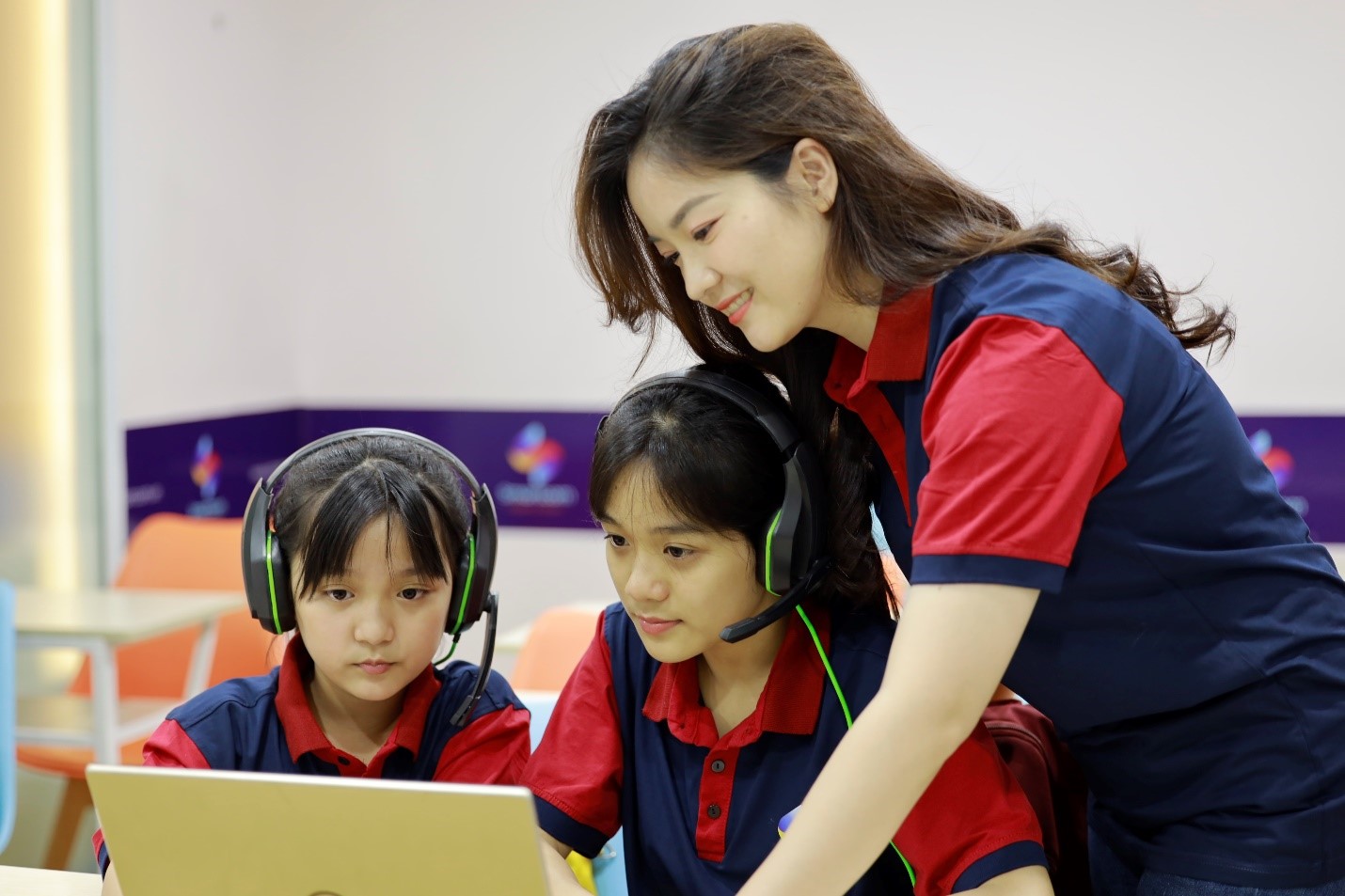
Xem thêm:
IELTS Speaking chủ đề Family: Câu hỏi và mẫu trả lời Part 1, 2, 3
Khóa học IELTS hết bao nhiêu tiền?
Trên đây là list 50 từ vựng và một số câu hỏi đi kèm với câu trả lời mẫu IELTS topic Education part 1, 2, 3 thường gặp. Mong rằng sau bài viết này bạn có thể học được thêm nhiều điều bổ ích để nâng cao kỹ năng Speaking của bản thân. Hãy tiếp tục theo dõi website Smartcom để nhận được nhiều kiến thức hữu ích nhé!
Nếu bạn muốn tìm hiểu thêm về các khóa học luyện thi IELTS tại Smartcom English, hãy liên hệ ngay hotline 024.22427799 để được tư vấn chi tiết nhé!
Kết nối với mình qua
Bài viết khác

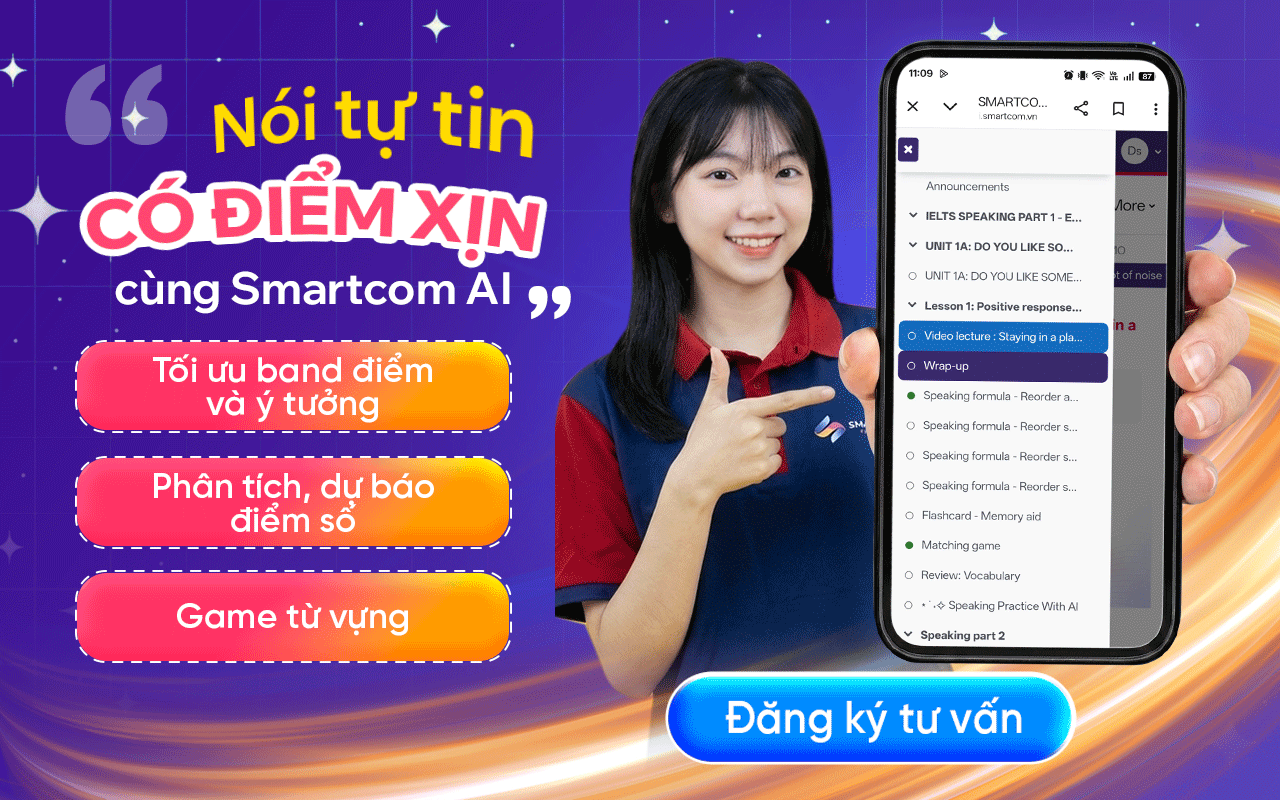
![[PDF + Audio] Tải Sách IELTS Cambridge 19 (Kèm đáp án)](https://smartcom.vn/blog/wp-content/uploads/2024/06/ielts-cambridge-19_optimized.png)

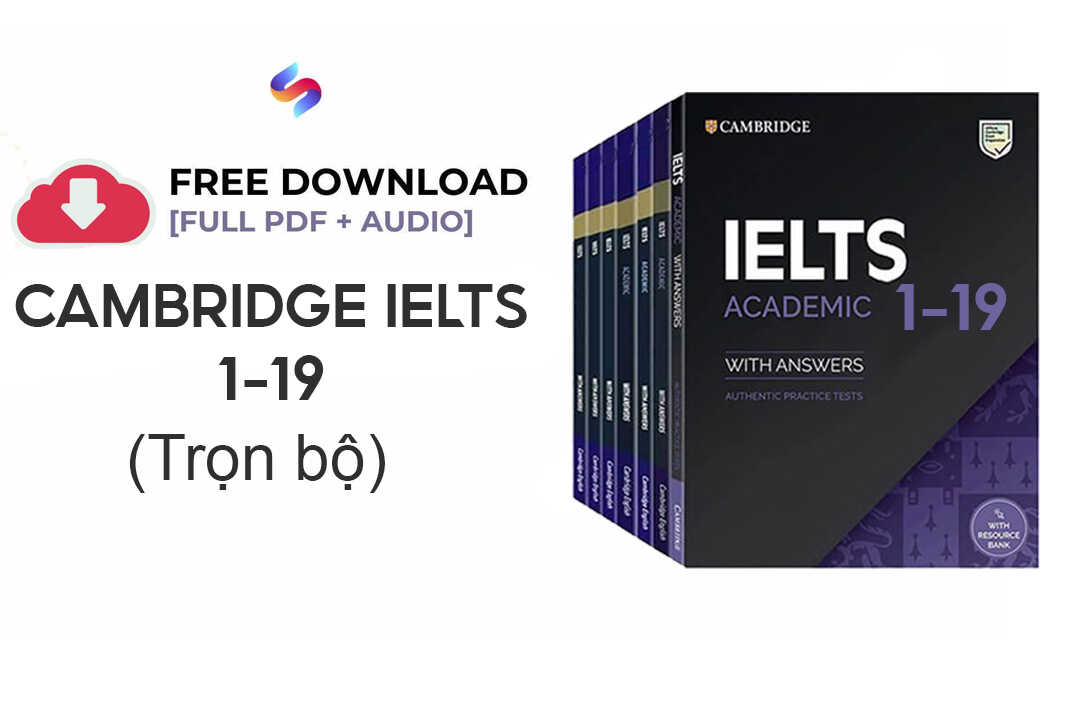
![[PDF + Audio] Tải Sách IELTS Cambridge 17 (Kèm đáp án)](https://smartcom.vn/blog/wp-content/uploads/2024/07/sach-ielts-cambridge-17_optimized.jpg)
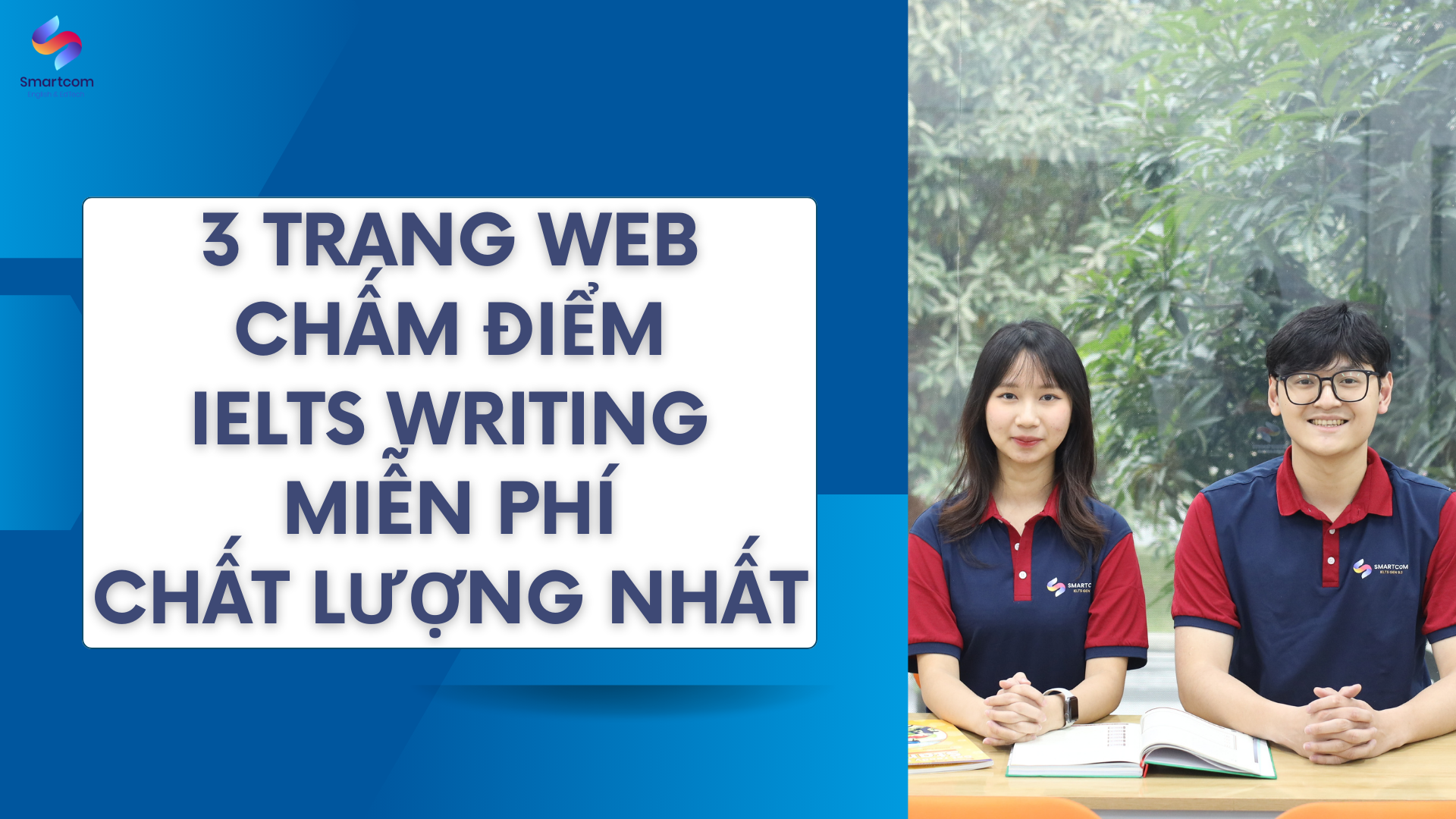
![[PDF + Audio] Tải Sách IELTS Cambridge 15 (Kèm đáp án)](https://smartcom.vn/blog/wp-content/uploads/2024/07/ielts-cambridge-15_optimized.jpg)
